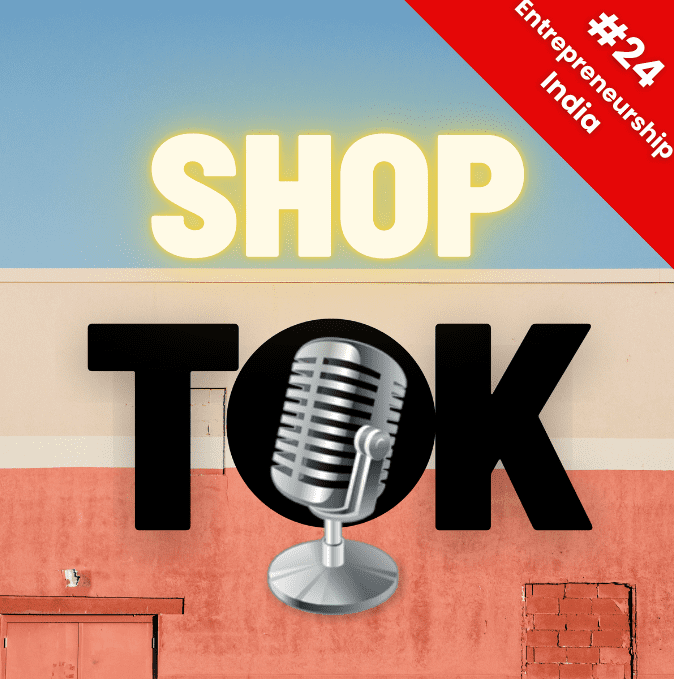ST5 | Priti Agarwal On How My Employees Helped Me Pivot
Have you ever had a brainwave and couldn’t wait to leave everything and start on it, only to realise that things didn’t exactly work the way you thought they would? A lot of times reality check, the actual implementation, execution, etc makes one realise that the idea needs tweaking, and possibly even a proper mutation for it to work. And through the journey, the end result may end up differing a lot from the initial seed idea.
And that is imperative. You have to be flexible like in everything else in life, to adapt and morph the idea in sync with reality. A stubborn approach to not deviate from it, may not be the proper response. Today we have Priti Agarwal, who has lived the journey of going through multiple iterations in her personal entrepreneurial venture spanning a decade.
Table of Contents
Discussion Topics: Priti Agarwal On How My Employees Helped Me Pivot
- How was the implementation of The Catalyst started
- What led to the pivot
- How did the business model change
- Key Lessons and tips for pivot
Transcript: Priti Agarwal On How My Employees Helped Me Pivot
Welcome to another episode of ShopTok. Priti, I remember when we were in college and fixated on doing our MBAs, how important it seemed to have a good corporate job. And you actually got into your top choice of company with HUL But just a few years in, you decided to leave it all and take a very brave decision of going on your own. This, was a decade back when it wasn’t even a vogue. How did you do this?
I remember in college, all we could dream about was the MBA. And then when we were doing our MBA, we could dream about how we could get into our dream jobs. And it actually worked for me, getting into Unilever because Unilever gave me a lot of autonomy in terms of what I wanted to do. “It’s a play that makes us do serious stuff better”. That’s the philosophy on which I founded Catalyst, an experiential learning firm.
My interest in people development started very early in my career, even before the entrepreneurial bug bit me when as a sales manager and a leader at HUL, I pioneered and rolled out various learning forums for my team. I continued to mentor and coach peers and subordinates in my role as a strategy consultant at Accenture. But I knew learning had to be more self-driven and immersive for it to be meaningful. This is the vision on which The Catalyst is founded.
So what were the dilemmas that you faced? I’m sure it wasn’t an easy decision in terms of implementation.
In the initial years, I worked largely with MBA and Engineering colleges across India. I assessed the talent in these colleges, trained them on employability skills using game-based methods, and prepared them for large MNC companies which were not even visiting their campus. MNCs benefited as they got access to a pre-assessed and pre-trained talent pool across the country. As such, I had to tie up with colleges as well as corporates for hiring.
While the corporate tie-ups were easier, the college tie-ups were more difficult. Usually, they wanted our services free of cost or asked us to charge the students after the placement was done. In 2013, there was a Supreme Court ruling that stopped recognising many private universities. They suddenly had to shut the shop. They were some of the biggest clients and I was saddled with bad debts and I realized it was time for me to pivot.
I know the version of Catalyst now differs quite a lot from the initial version, and I commend you for being flexible to respond to the market and times what led to a pivot? Was it organic or did you have to scrap and go back to the drawing board when embarking on corporate training?
We did go back to the drawing board. In 2013-14, I really struggled with my original business model. I did not have money to pay salaries for 6 months. But one of the companies that I was recruiting for, PepsiCo, came back asking for sales training for their new hires. That was my opening into Corporate training. I realised it was a better market – better margins, better paymasters, and operationally, lesser hassle. So, we decided to pivot. We became choosy about the colleges we wanted to work with and instead focused on Corporates.
So what were the struggles that you had to go through in this shift and now facing corporates more than NBA colleges?
It’s two parts. Now that we had to move into corporate training, the entire team had to realign themselves to the fact that we run on different markets altogether. And this had to be overcome with transparency and help. So at Catalyst, we’ve always been transparent. Everyone’s been very transparent about what their fears are and what their aspirations are and that really helped. We had, for instance, a very strong team member at Catalyst whose aspirations were not matched with the way we were realigning and so, while she still associates with us, she’s not a full-time employee anymore.
The second challenge was we realised that game-based training was a niche in corporate learning and tied up with many international players, bringing their products into India. But again, we could hardly make any money on their products as we had to pay dollars as license fees but earned in rupees. So we started building our own games and simulations.
We hired some instructional design experts, completed some courses on game design, and slowly and steadily worked on creating our own games. In 2020, when the pandemic hit, our games again became redundant as they were all board games, card games, tactile games etc which needed face-to-face learning.
So we had to re-think our strategy. We moved our board games online, converted them into online simulations using a tech partner, and experimented with simpler online games which could be embedded into virtual training. Last year was a struggle, but thankfully, we added some new clients and this year is turning out well again.
And through all these pivots, I know that you’ve maintained a very core team, which has really stood with you through this journey. How have you maintained that kind of loyalty?
So I have a team of nine people who are core to us, which means that they work with us completely employed. But I have a large team of people who only work with project to project basis, or on a contractual basis. These 10 people are completely aligned with the way we aspire to grow. We are very comfortable and beyond just team members. We are not just colleagues, we are friends and we understand the way each other works. We have the kind of understanding and flexibility and know the life stories where some people might slap a little and someone needs to take cover for them, etc and I think that has kept my team intact.
And even through times when I’m sure when you had the lulls in your business and you probably had cashflow crunches and you couldn’t pay out salaries, how do you keep them motivated that this is not going to shut shop?
In 2019-20, our business was down almost 20% turnover and we had to reinvest, move our board games online, etc there were times I couldn’t pay salaries and my team actually contributed to putting the money into Catalyst, which means a lot of the funding for rescaling was done by my team. We had to rescale ourselves because instructional design for online games is very different from the way offline games design and that also was partly funded by my team. We’ll probably pay that back because businesses started looking up, but they have complete trust in the business model and they know that it’s a matter of time.
So what has been the life cycle? And what do you say would be the key challenges? If you were to talk about having gone through this for 10 years. And most of us who’ve been looking at it for the last couple of years. What do you think would be the key challenges that you faced?
I think this has been the best phase of learning for me in everything that I’ve gone through, starting with my corporate life or the entrepreneurial journey. As far as my learning is concerned, the first thing that I learned is that it’s very important to have predictability in your cash flow. So it’s really important for instance, to understand where is it that the money is coming from. Where is the money? If the cash flow is unpredictable and you’re under short-term financial stress, you end up making very poor decisions. So for example, we would sign up with the wrong clients for the wrong kind of projects and those are desperate measures, which leads to a lot of regret later on.
Second, it’s important not to overthink. You can never predict how the market is going to move. You can never predict which client is going to suddenly grow, which client is certainly going to shut shop. So you have to get your hands dirty and start off even if you have got 70% of your business model and then be flexible to pivoting it as and when things change.
The third one is building a solid team. I have a small team of 10 people, each of them handpicked. Spend time, don’t rush into it, and make sure you get this right as early as possible. Your team is your support and your business depends on them as well. So, getting this right is very important.
And I know you truly believe in a steady board. So do you think chasing the unicorn dream is for everyone or does it lead people astray as well?
We don’t want to scale up. In the business, if it leads to scale, not by design, but by chance we are happy. Now we see that a lot of our products are ready to scale because they’re online, but they went online because the learners wanted them to be online. The market required it to happen. So we have to stay true to what it is that we are selling and to whom it is that we are, selling that product. Different people are in business for different reasons. Some people might be really charged up for the scaling and being unicorn and the hype but we truly believe that you have to stay true to the value proposition that you offer.
I guess that’s why you have such a loyal team and a loyal client base.
Absolutely and we are proud of that. Once a client, always a client and that’s another reason we realize that the value that we offer to the learner is central to what we do. And everything else is secondary.
Wow, It has been very clear to the points that you need to be flexible and change according to the market. And in fact, ultimately, success is staying true to your value proposition and not straying from it.
Thanks, Priti, It’s been very helpful. This is Neha and Priti with ShopTok. See you next time.



